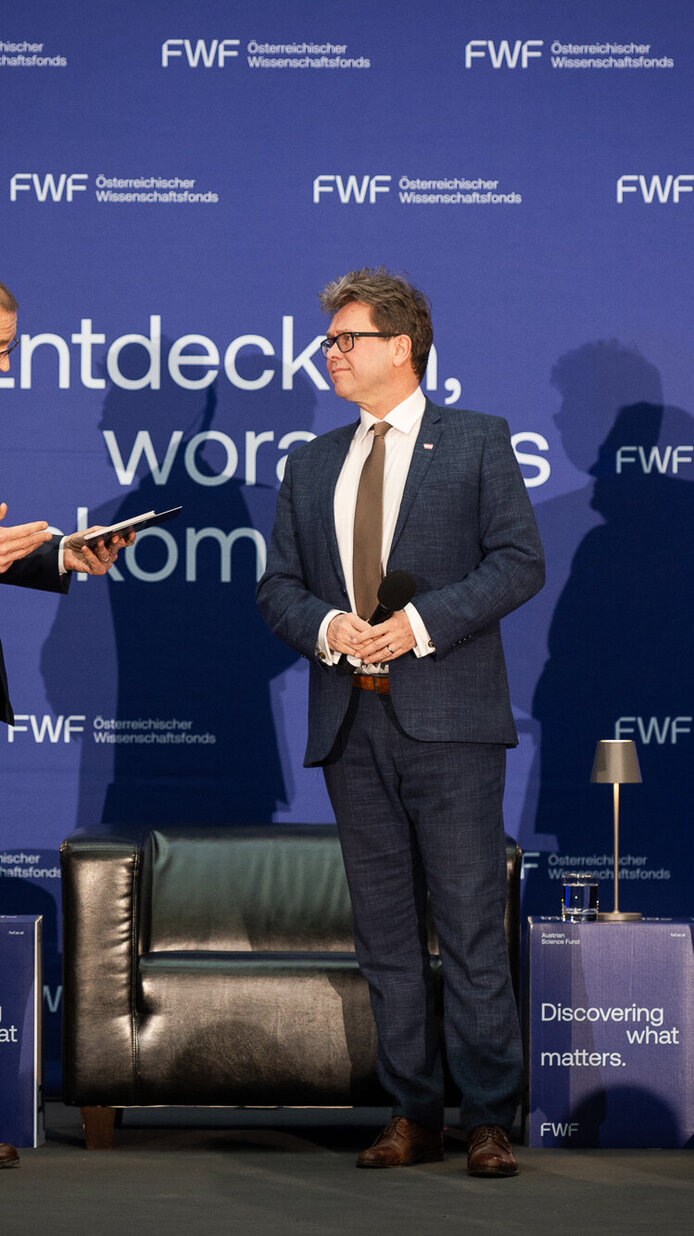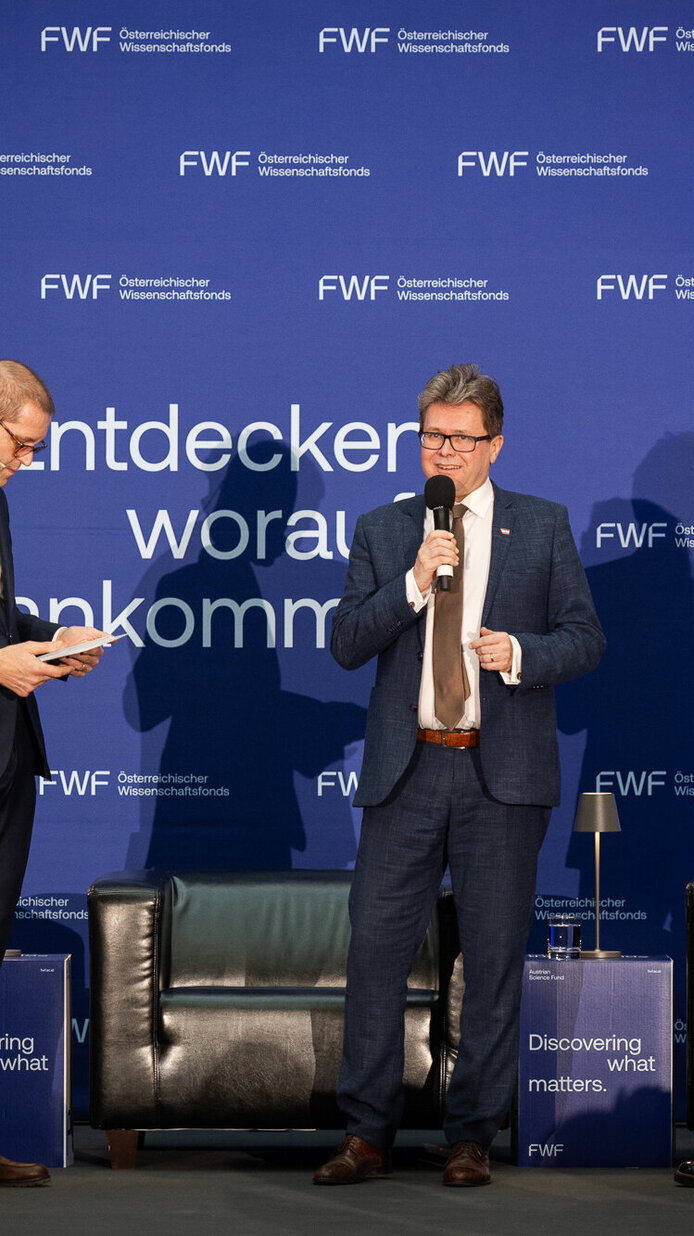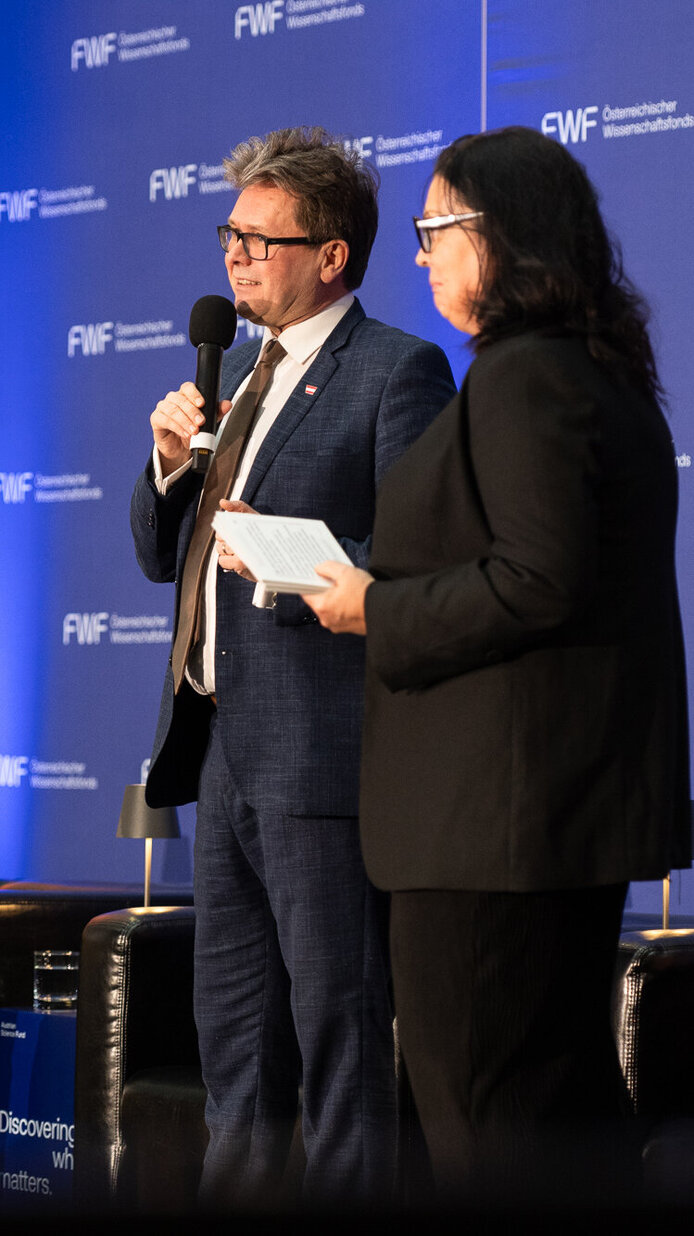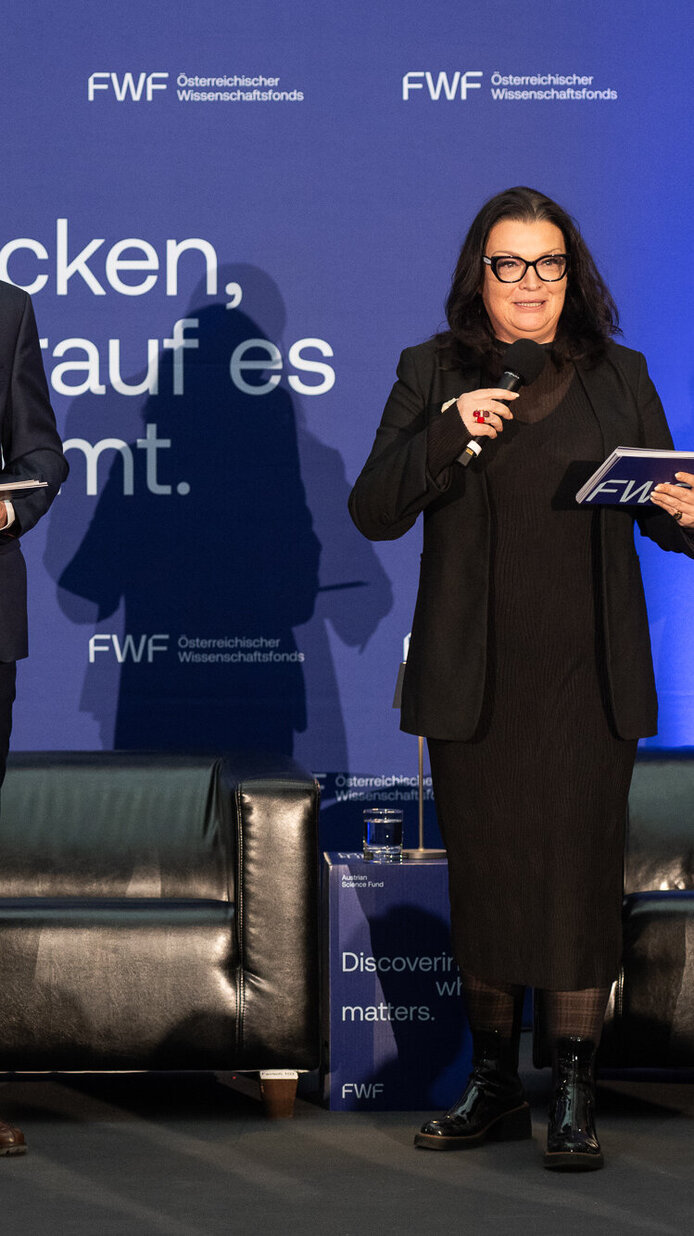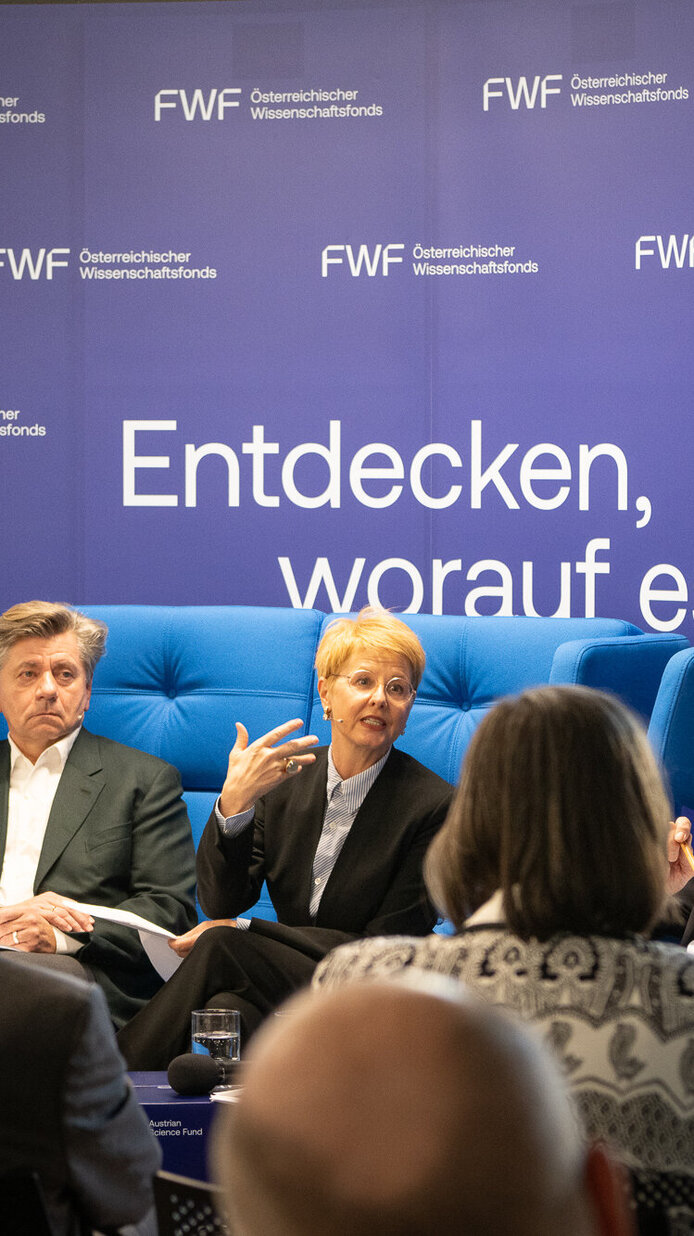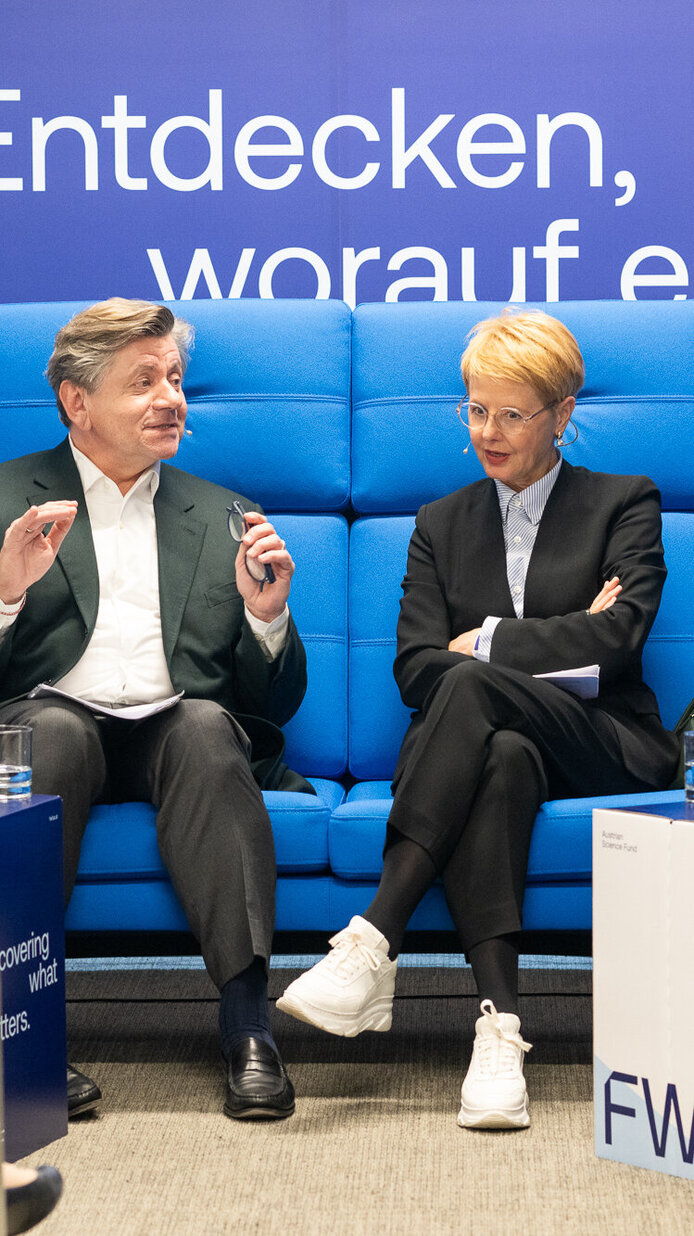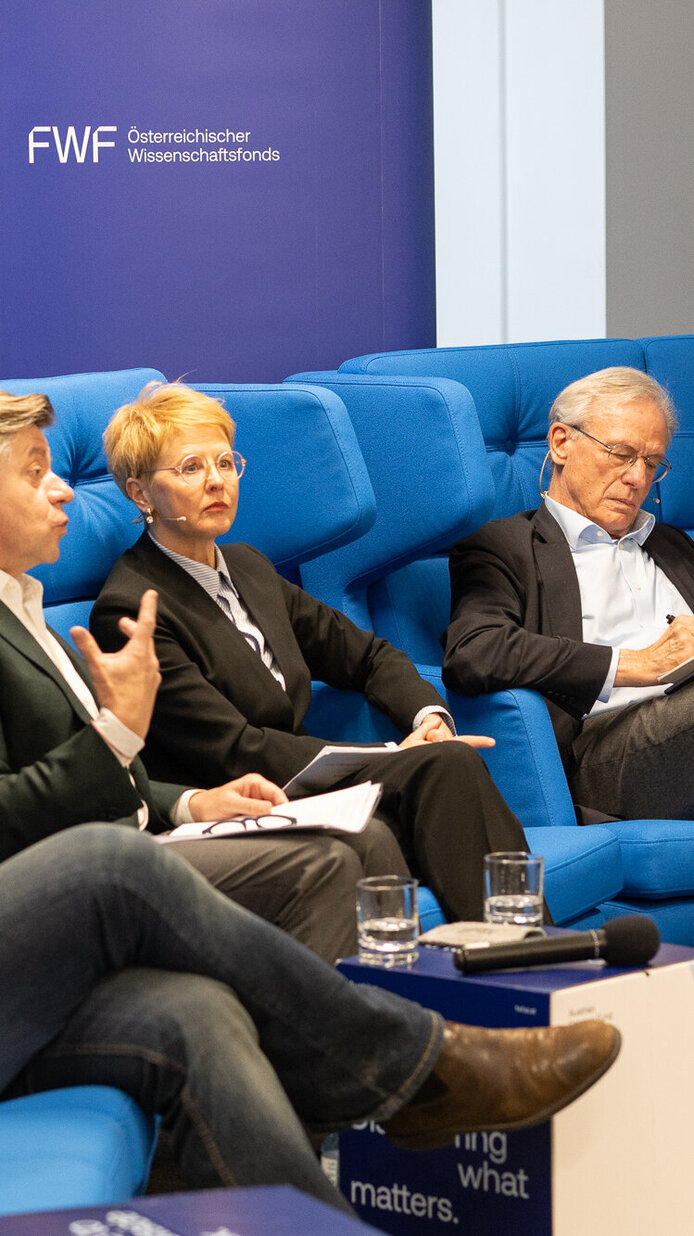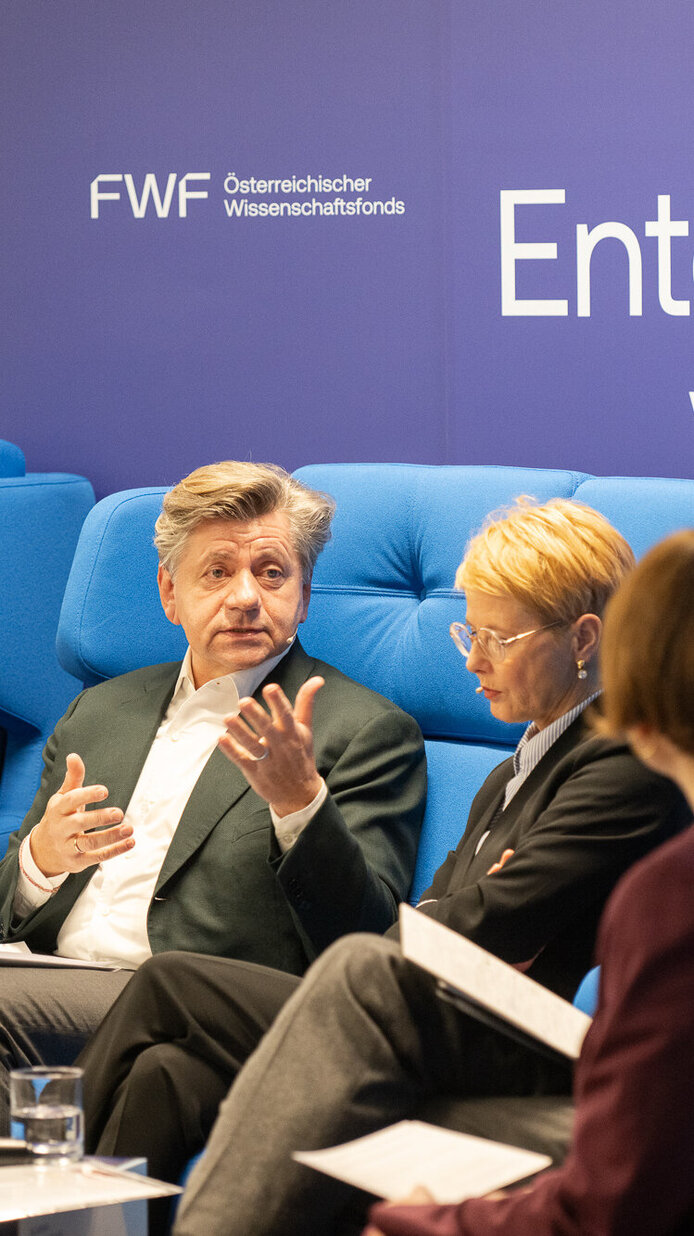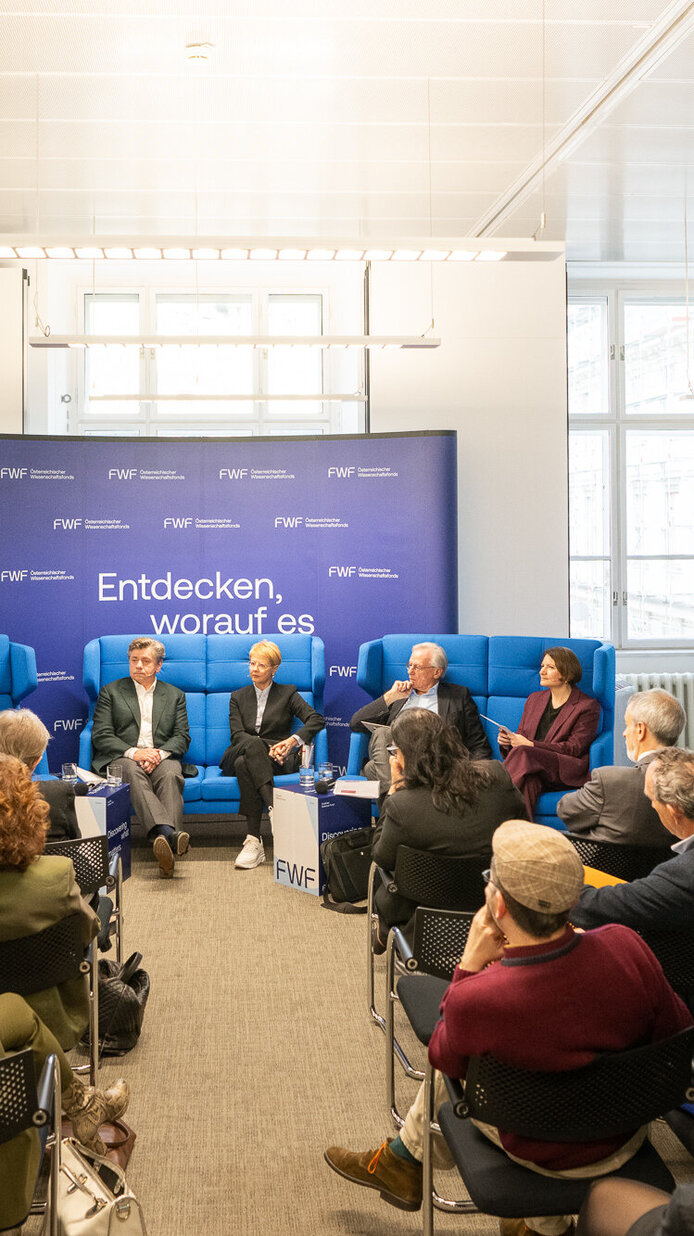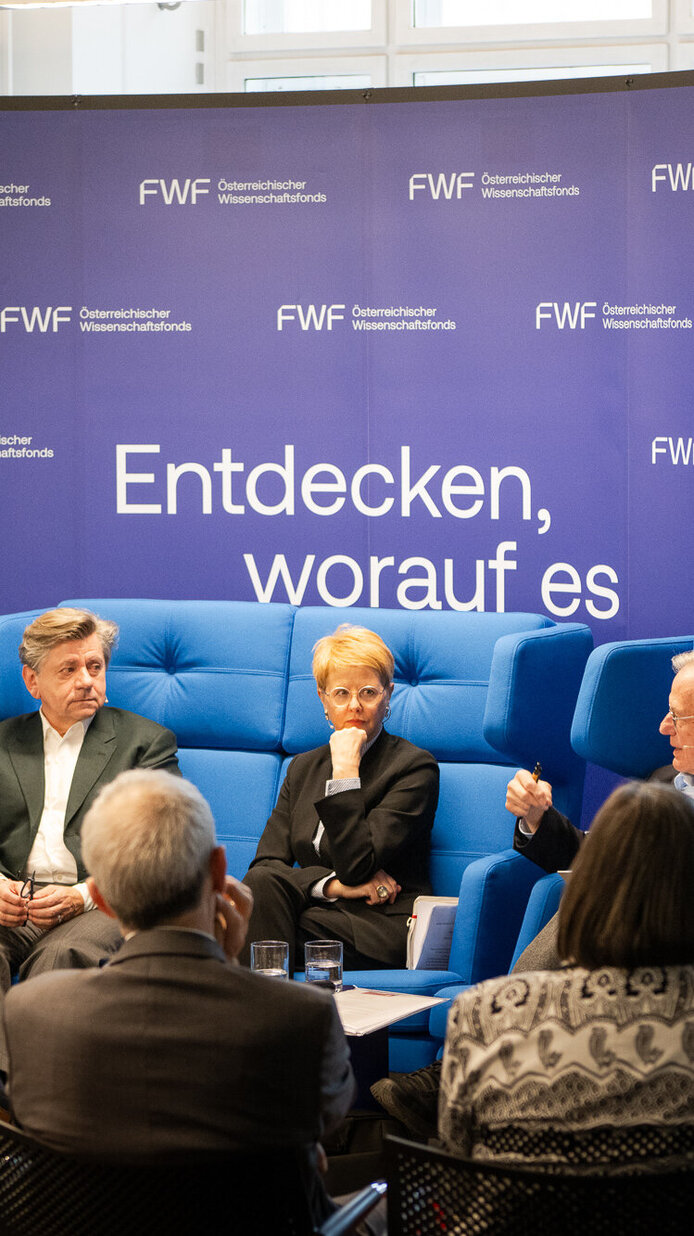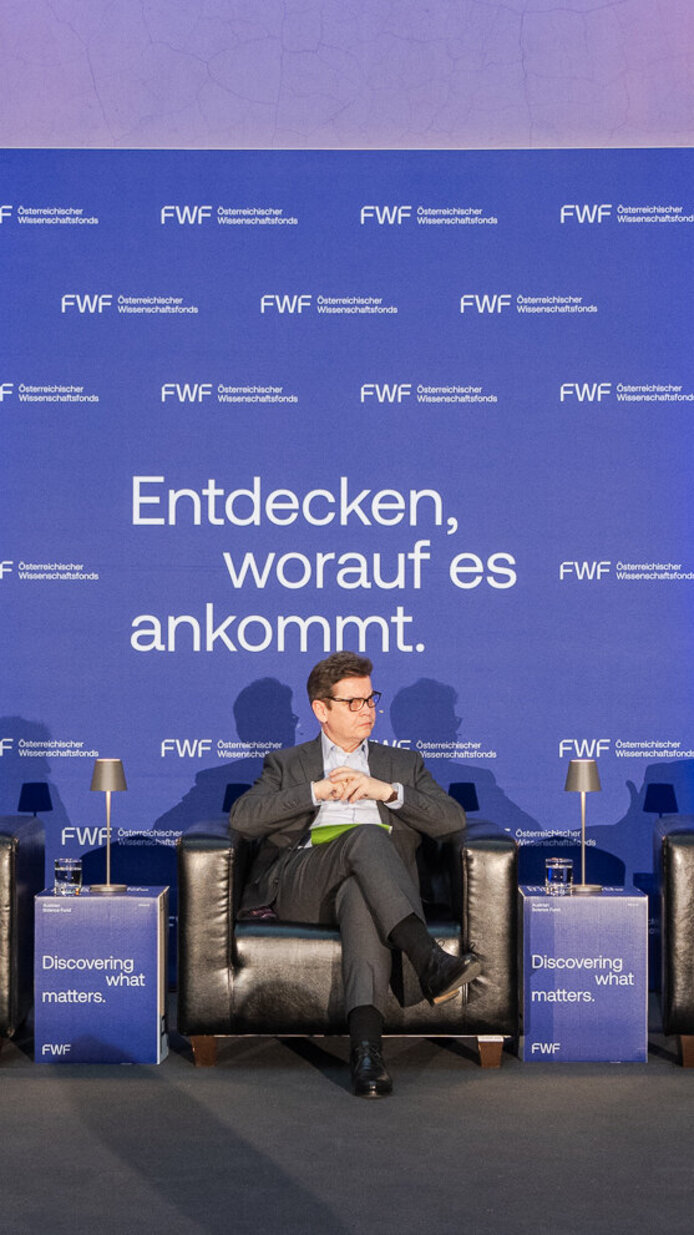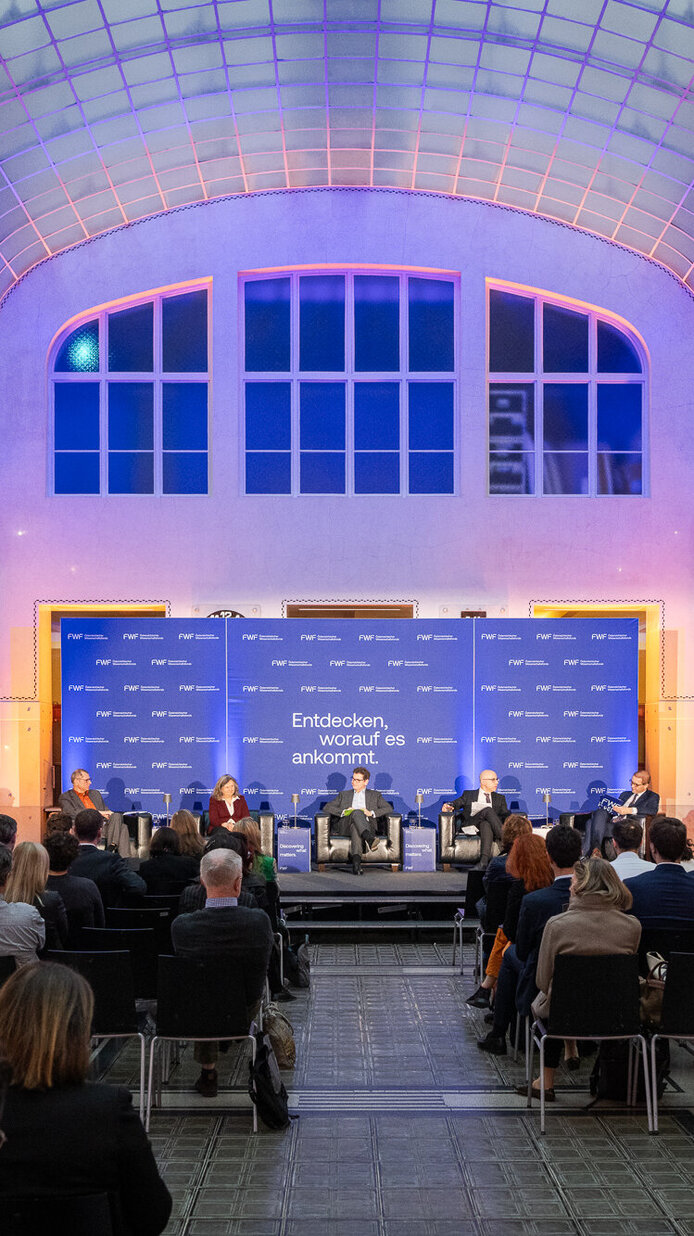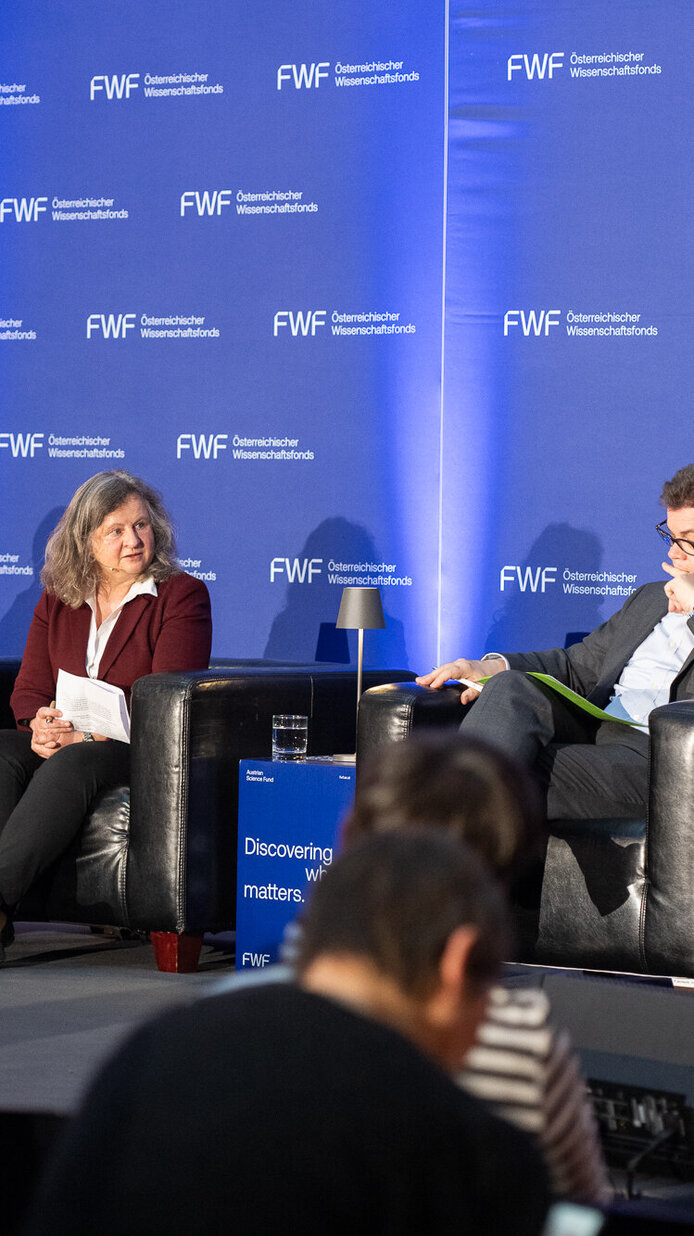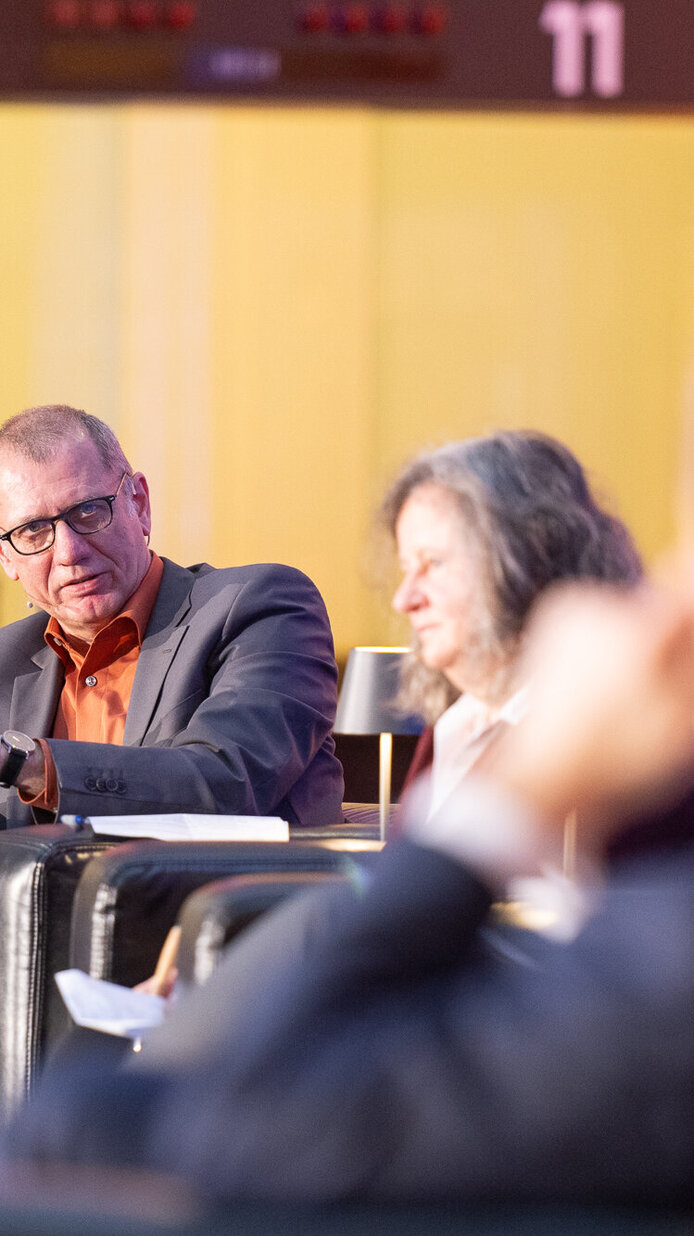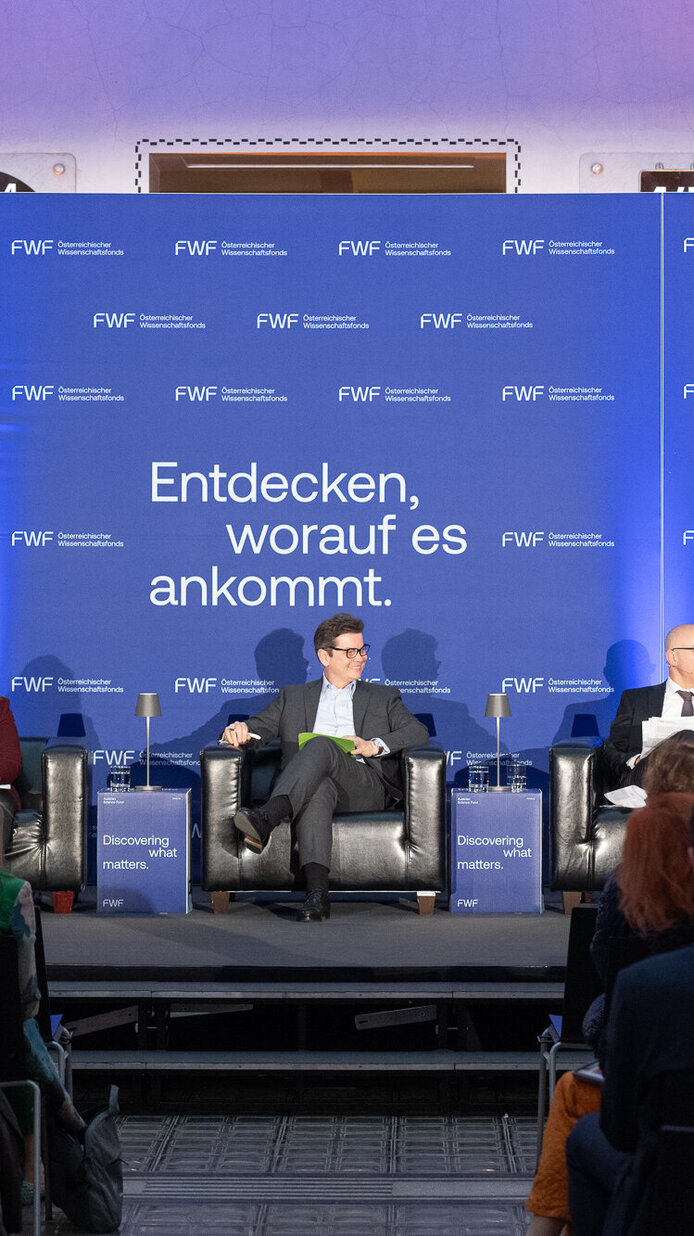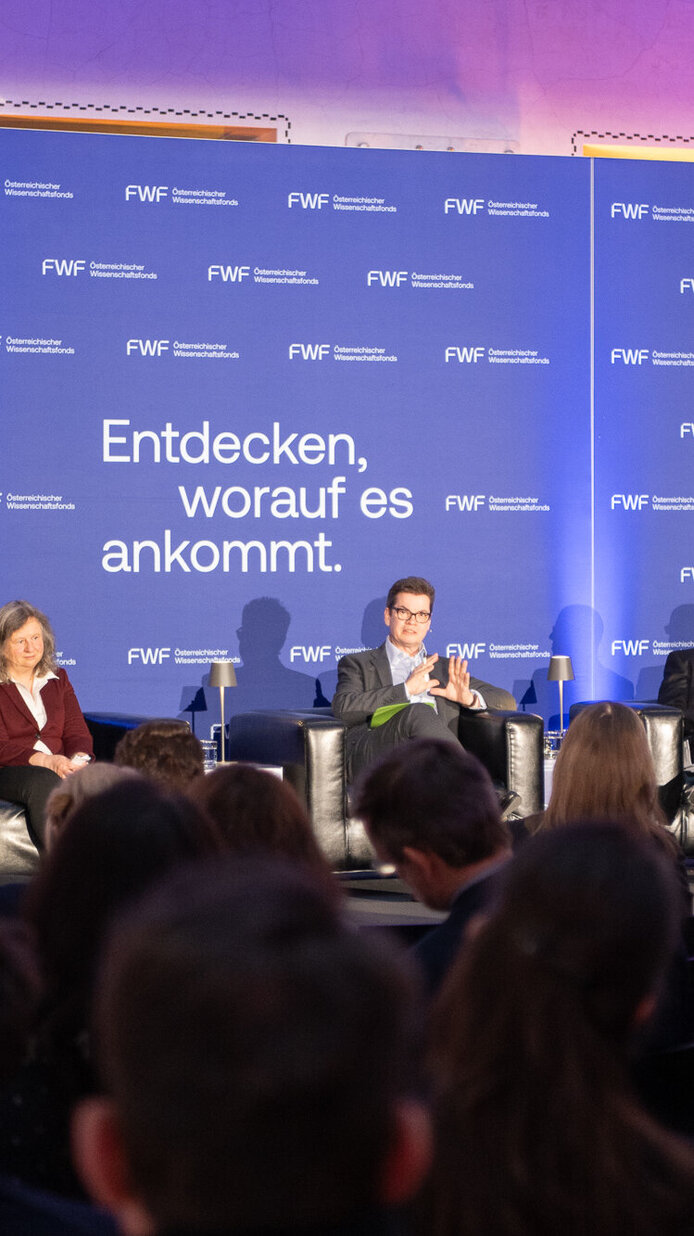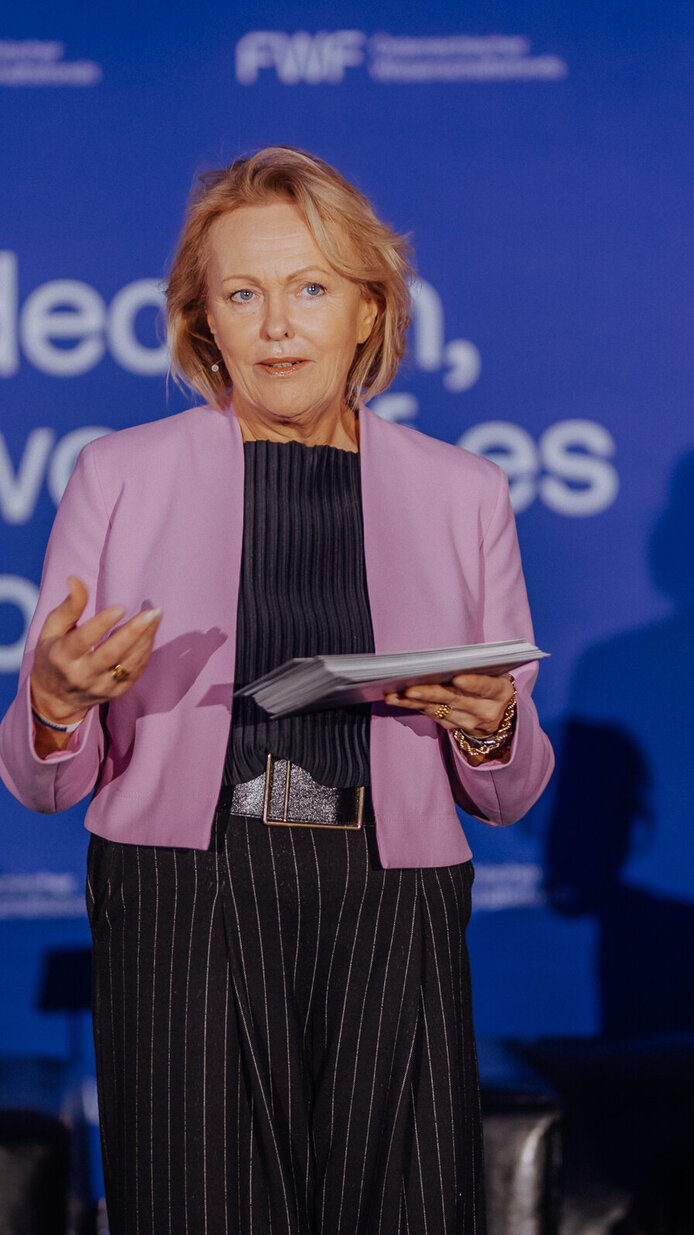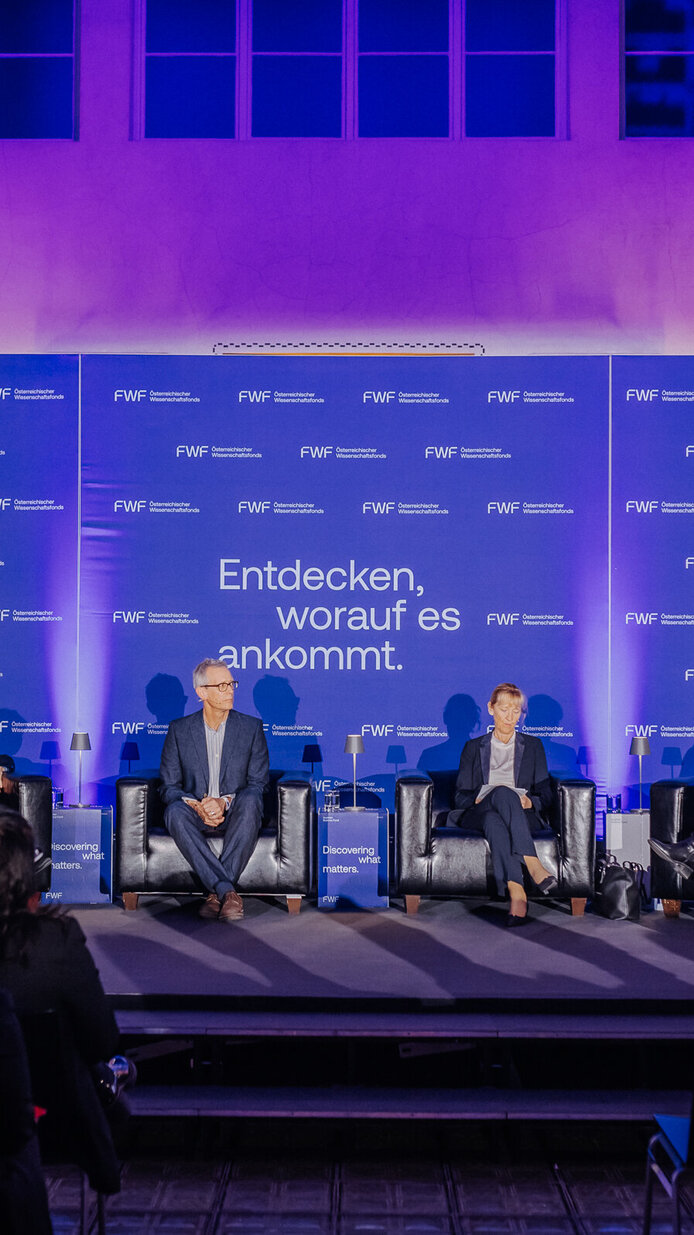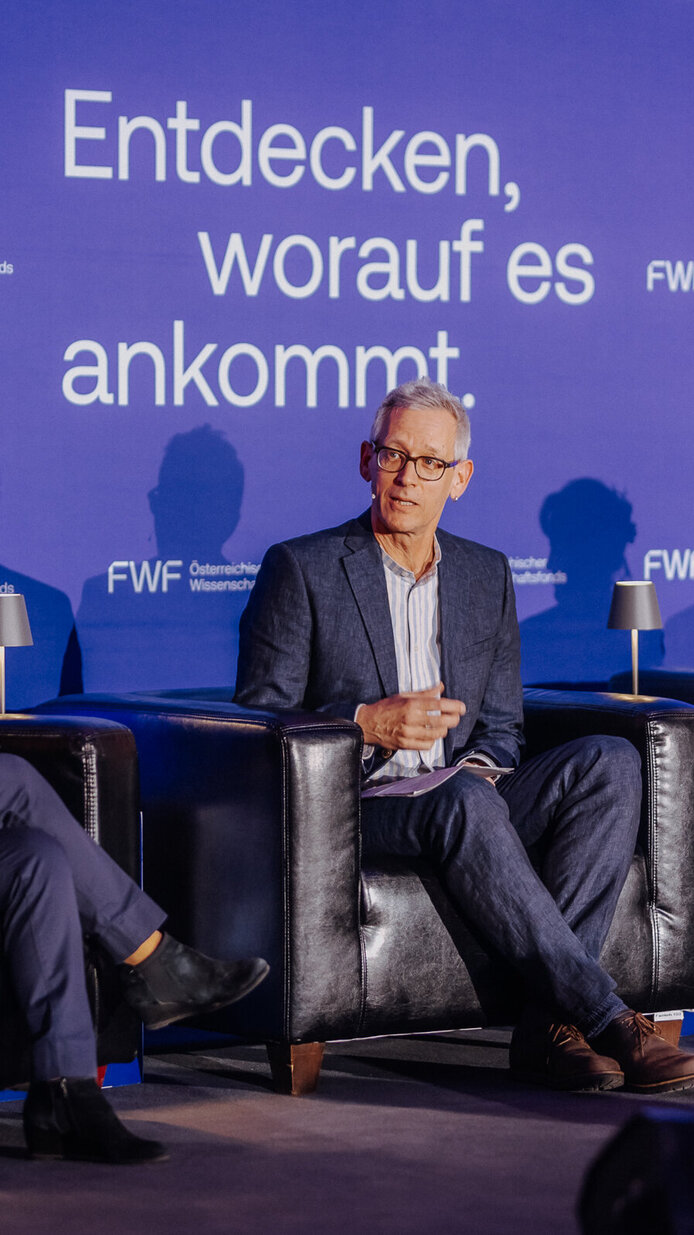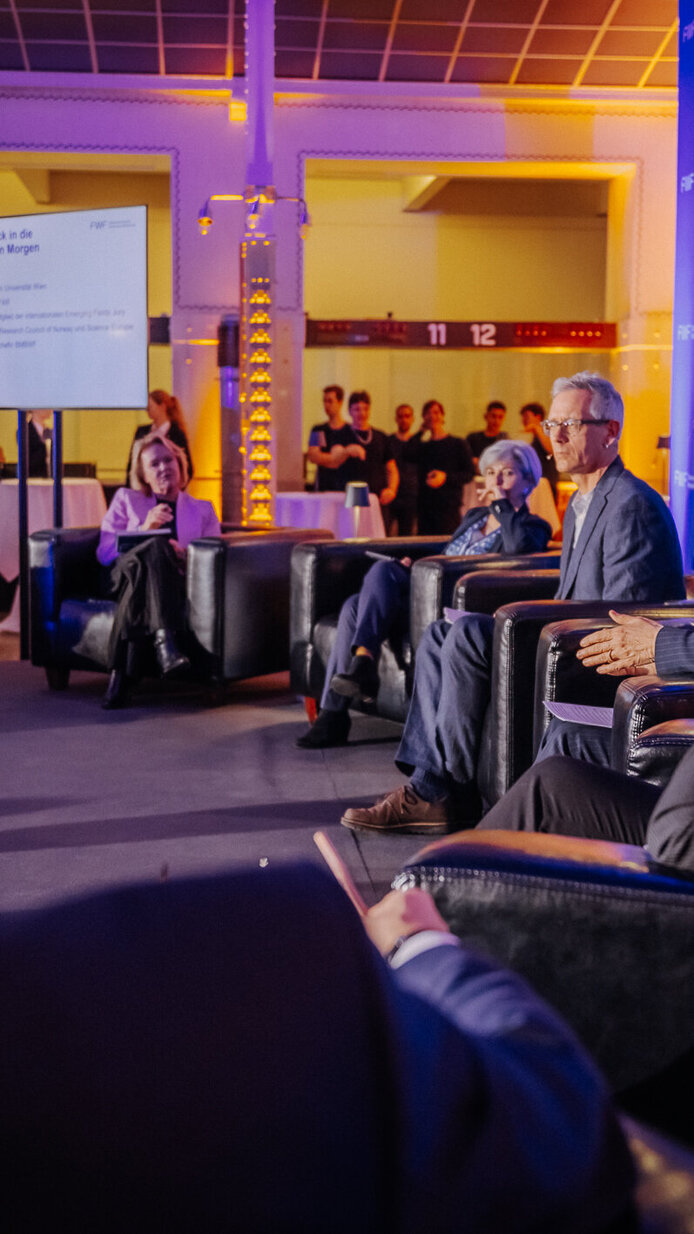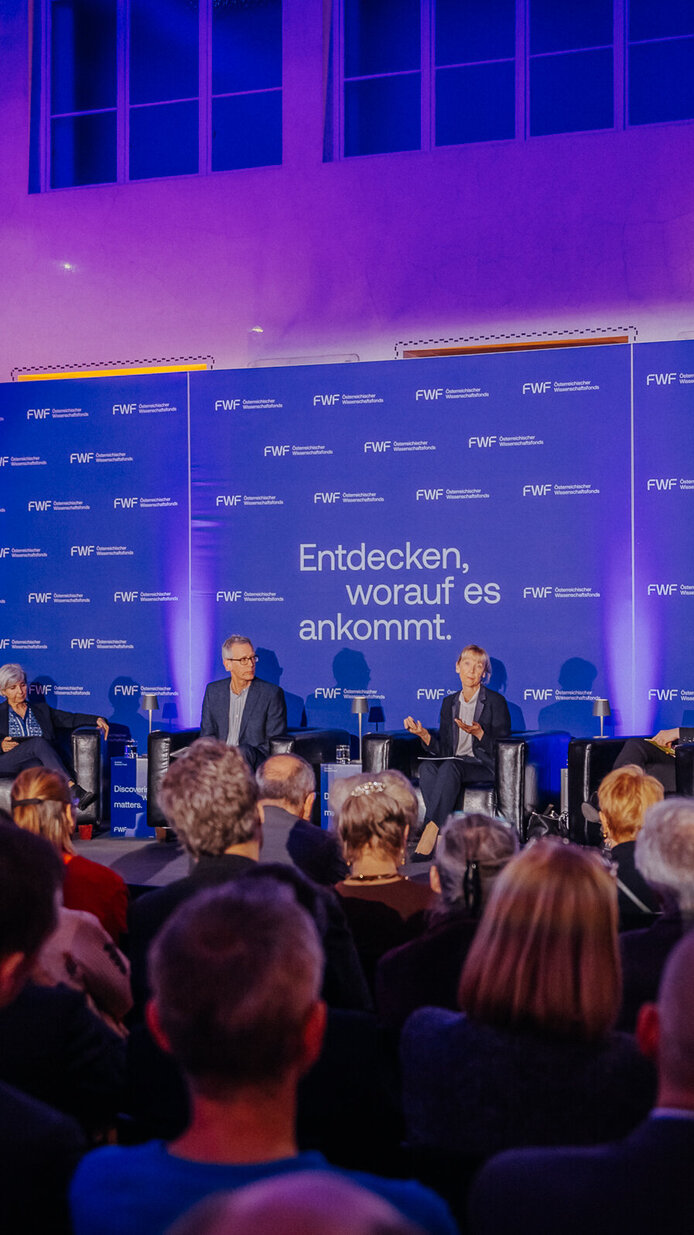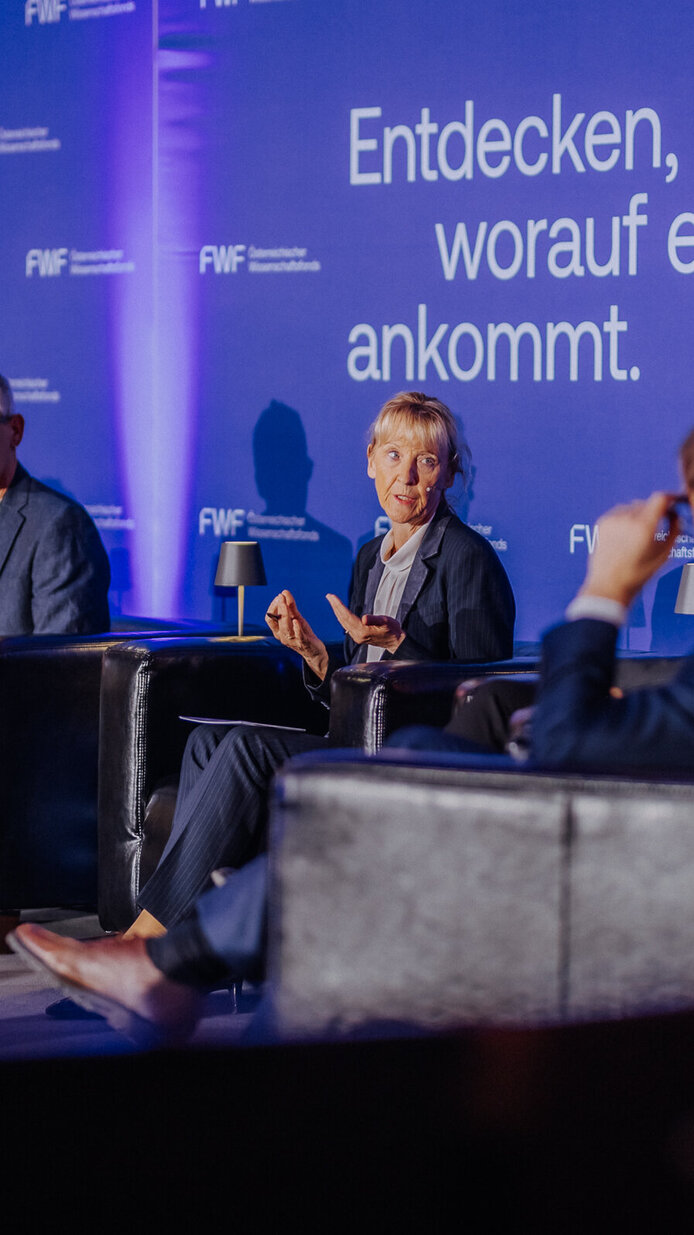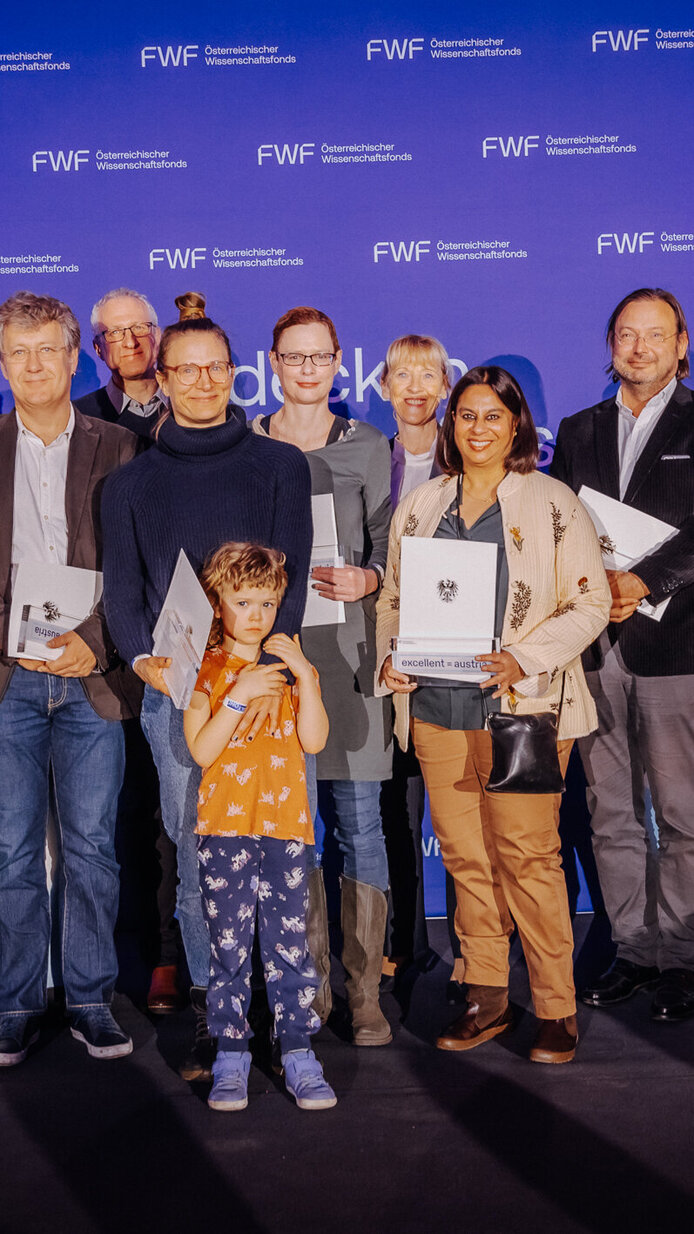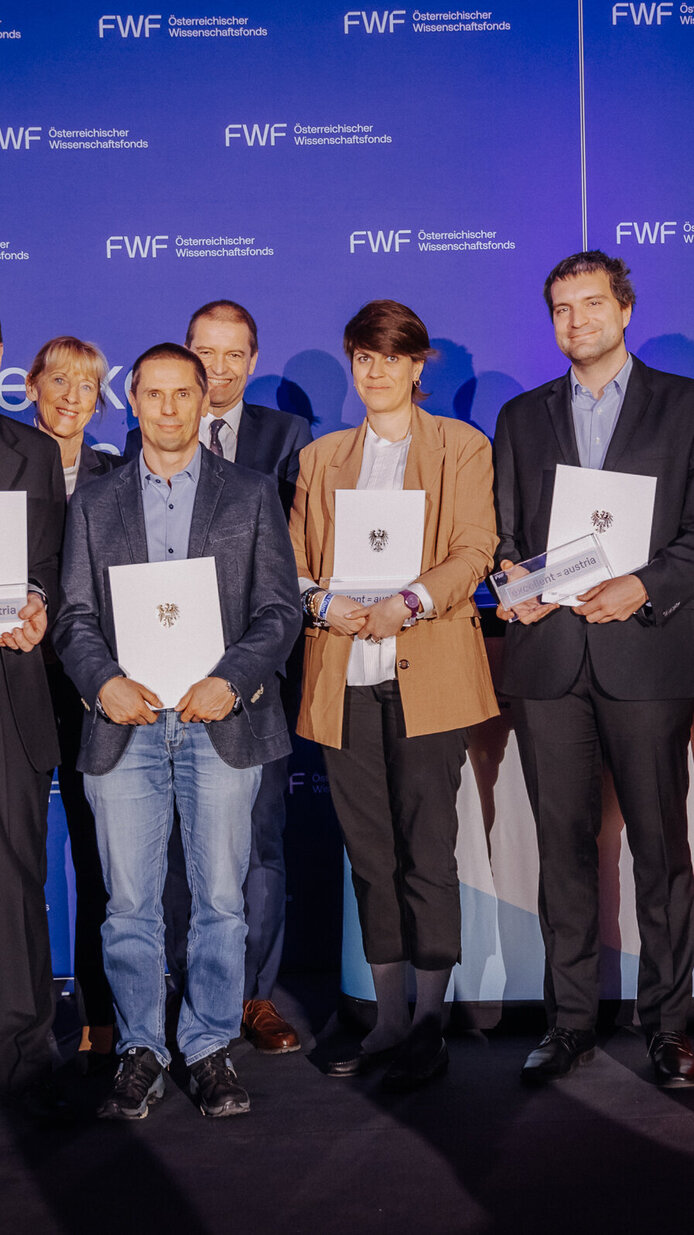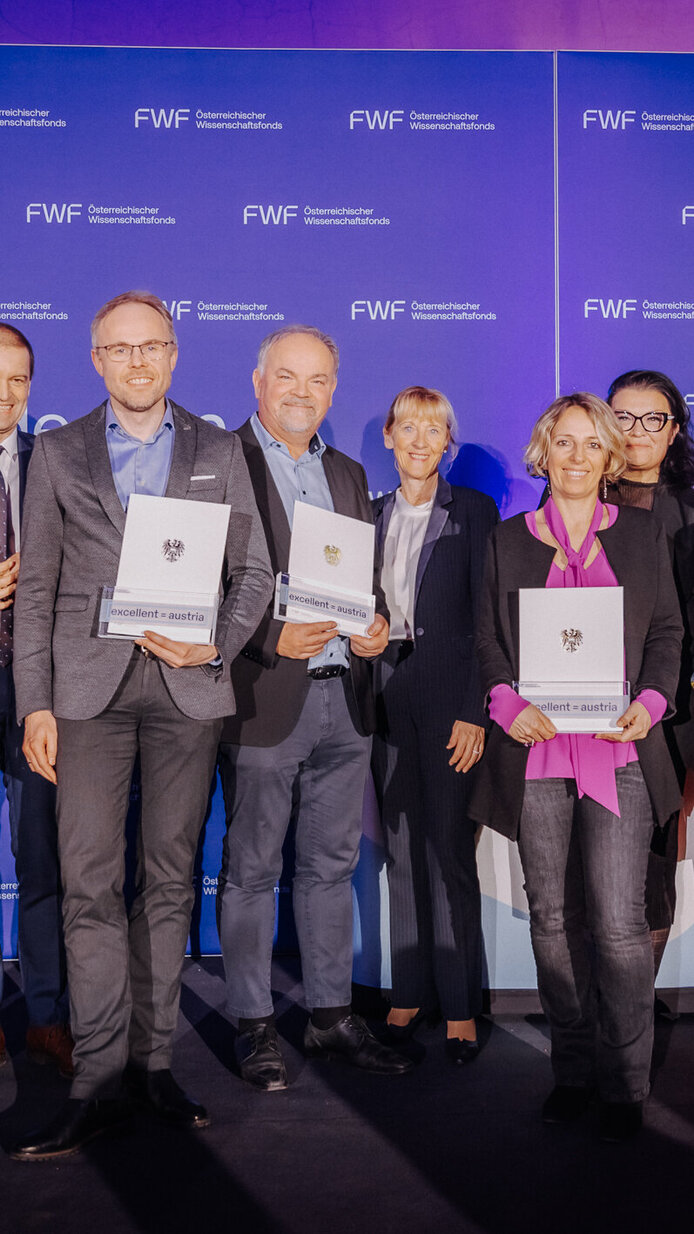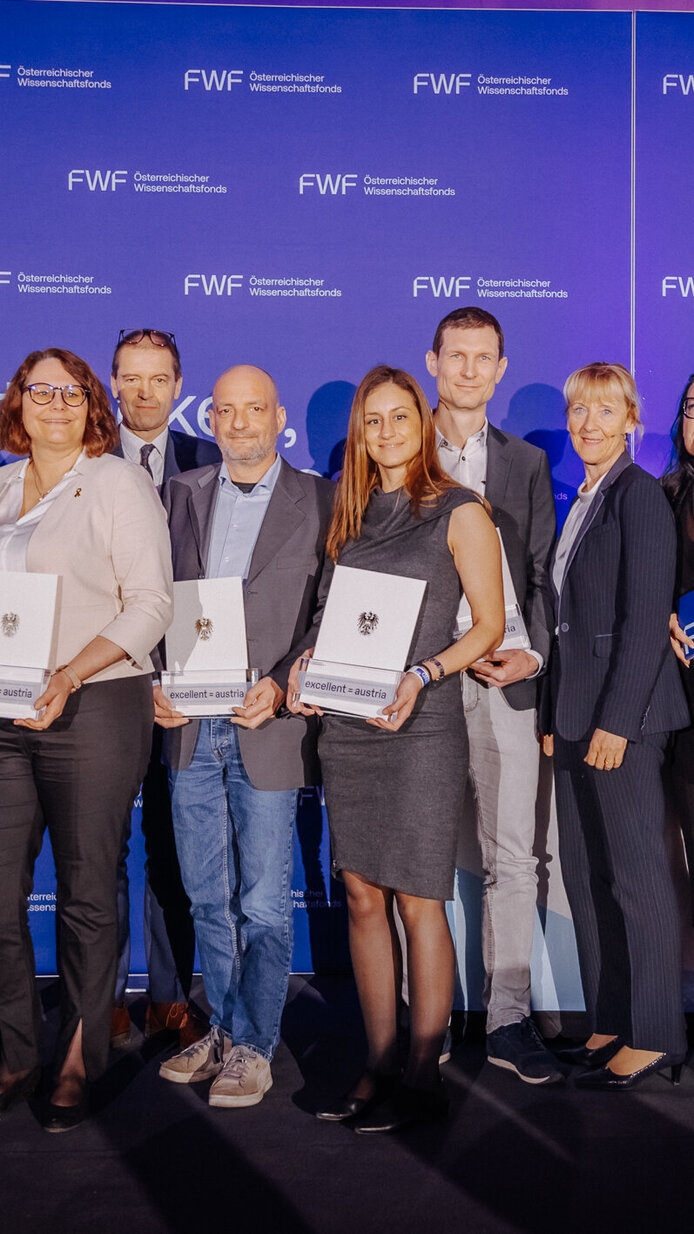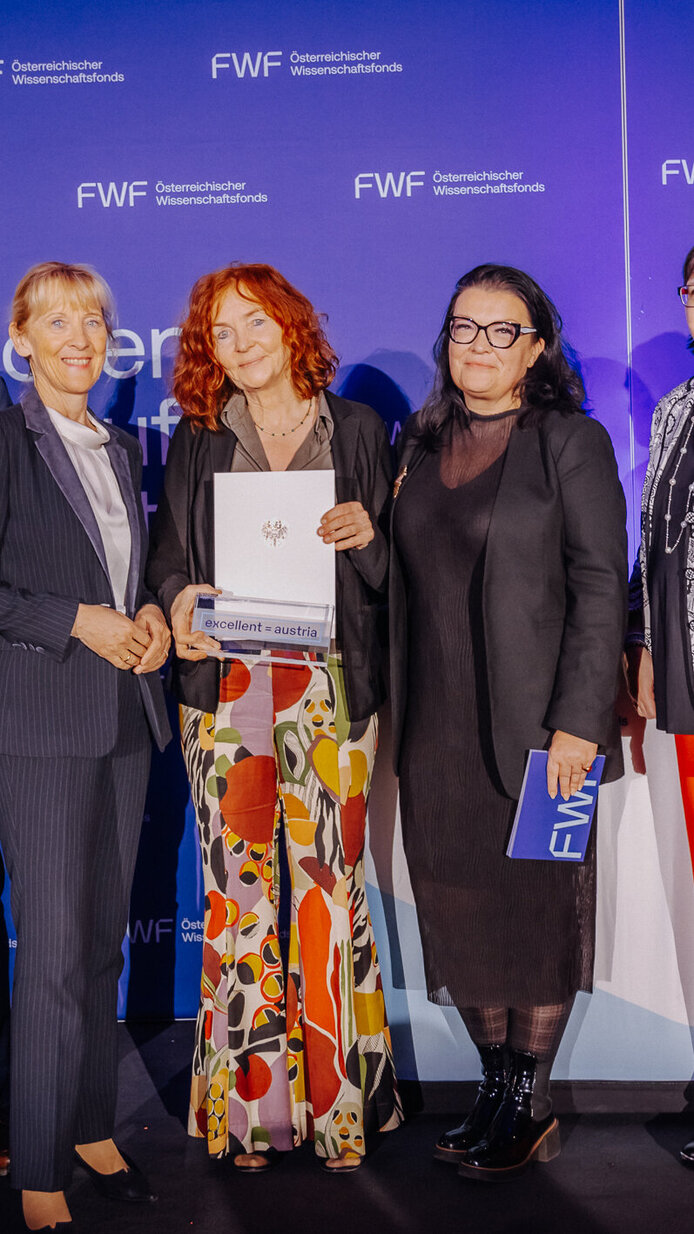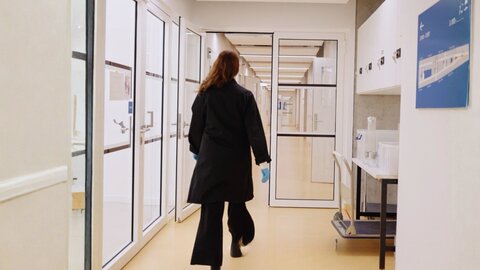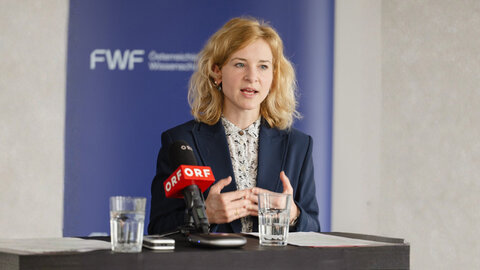A Look into the Cutting-edge Research of Tomorrow
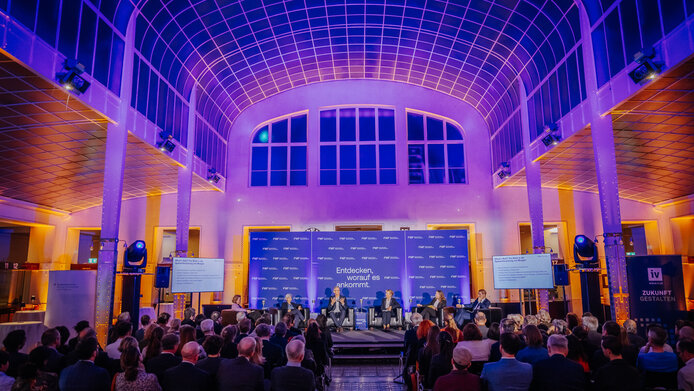
The Austrian Science Fund (FWF) held its first “think.beyond” Summit - The Future of Basic Research, which focused on the impact of basic research on the economy, industry, and society. The Summit aimed to involve all stakeholders in the Austrian research and innovation community in a conversation about new forms of funding for science and research in two breakout sessions – one on research philanthropy and one on innovation and the economy – as well as a panel discussion. In his welcoming address, Martin Polaschek, Federal Minister of Education, Science and Research, referred to the “synergies between traditional research institutions and research in companies and non-university institutions,” which play an important role in overcoming current challenges, namely the rising costs of research technologies and the fight against scientific skepticism.
The focal point of the panel discussion on March 14, 2024, in the historic rooms of the old Postsparkasse building in Vienna, was the FWF’s recently launched Emerging Fields program. The program is the second funding track of the initiative excellent=austria and is intended to fund outstanding, groundbreaking basic research that deals with interdisciplinary research topics, the contours of which are only just becoming visible, and which demonstrate great potential for innovation. Five major research projects that meet these criteria from the first Emerging Fields call are currently being funded with a total of €31 million for the next five years. They were presented at a formal ceremony at the end of the first “think.beyond” Summit.
Does the Emerging Fields program represent a new form of basic research and a paradigm shift in research funding? And if so, why is this paradigm shift necessary? The idea behind the first “think.beyond” Summit was to find out what conditions are needed for cutting-edge research and to bring together free thought and innovation.
Moderated by Hannelore Veit , the panel included cell biologist Manuela Baccarini, Vice-Rector of the University of Vienna, physicist Christof Gattringer, President of the Austrian Science Fund FWF, environmental scientist Christian Pohl, member of the Emerging Fields jury, Mari Sundli Tveit, President of Science Europe and Chief Executive of the Norwegian Research Council (Norges forskningsråd), and Barbara Weitgruber, Head of the Scientific Research and International Affairs division of Austria’s Federal Ministry of Education, Science and Research.
Revolutionary and relevant
The FWF funded excellent basic research in 2023 with a total of €350 million. Host Christof Gattringer gave an introductory outline of the new Emerging Fields program, which will support five projects with €31 million in the first round from 2025 to 2030: “All research has evolutionary and revolutionary aspects,” says the FWF President. “It is evolutionary insofar as it is based on established knowledge, and revolutionary because research must critically and radically question established knowledge to develop further and create something new. With Emerging Fields, we are targeting this revolutionary aspect of research; we want to give groundbreaking and revolutionary ideas a chance, ideas that might otherwise get left behind in the highly competitive race for basic research funding.”
Luck and coincidence
Manuela Baccarini, Vice-Rector of the University of Vienna, recalled a famous quote by molecular biologist Max Perutz, who once said: “Discoveries cannot be planned; they pop up, like Puck, in unexpected places.” Openness to research results is key to the success of basic research, which is never guaranteed. Innovations like quantum cryptography, the CRISPR/Cas “gene scissors” and Covid-19 vaccines were the result of lucky coincidences and researchers’ thirst for discovery, leading Baccarini to conclude, “Researchers should be able to follow their ideas.” Patents prove that this also leads to economically viable results.
The President of Science Europe, Mari Sundli Tveit, also championed coincidence and serendipity. “The logic of funding should not force researchers to put their discoveries on hold,” explained Tveit. In Norway, the Research Council has adapted to the sometimes winding paths leading to scientific breakthroughs: If interim evaluations show that the direction of the research is changing, the Norges forskningsråd will also support the change of plan. “If it turns out that it makes sense to change direction, then you should be able to. No one should be forced to stay on a path for years just because it was outlined in the original funding application.” Despite such mechanisms, Tveit would like to see even more flexibility in funding programs.
Emerging Fields not only creates freedom, but also a framework so that revolutionary ideas can potentially become innovations that are relevant to society. “Defining relevance is not trivial,” reports Christian Pohl from ETH Zurich, who, as a member of the Emerging Fields jury, helped to evaluate the five funded projects. “A key to generating relevant results that does not restrict the freedom of research lies in the integration of different disciplines. This is how the Emerging Fields program automatically generates relevance for society and not just for one specific field of research.” Over 100 scientists from various disciplines in the natural sciences, social sciences, and humanities are involved in the five Emerging Fields projects.
National and European perspectives
The framework for funding basic research in Austria is determined by the RTI Strategy 2030, among other things. Both Christof Gattringer and Barbara Weitgruber, who, as division head at the Federal Ministry of Education, Science and Research, is currently negotiating new performance agreements with the universities, emphasized that this means financial planning security, which is of great importance both for research institutions and for individual researchers. “We want to strengthen innovation and high-risk basic research and are working, for example, on developing criteria for how universities can identify particularly innovative approaches in research and particularly innovative researchers who can then realize their projects with the support of coordinated funding programs such as Emerging Fields, Connecting Minds, and Citizen Science.” Research policy is responsible for creating structures that can also make supposedly “crazy ideas” productive.
“Being integrated in European research structures is crucial for innovative research in Austria,” explained Gattringer when asked about the relationship between European and national funding. The productivity of this integration can be seen, for example, in the high number of ERC grants that Austrian research groups have received: Since 2007, 480 ERC grants have been awarded to researchers in Austria, raising €835 million for excellent basic research. However, from Gattringer's point of view, the European perspective encompasses much more than just funding: “Technological sovereignty, security, democracy, academic and scientific freedom are issues whose importance for science in Europe cannot be overstated,” added Tveit, who in her other role as President of Science Europe represents European research funding bodies and research institutions.
An honor for five Emerging Fields
The first “think.beyond” Summit came to an extremely successful conclusion with the presentation of the first five Emerging Fields projects. These projects demonstrate what innovative, excellent basic research with social relevance can mean in concrete terms: The Emerging Field “Remass - Resilience and Malleability of Social Metabolism” will explore the conditions for resilient supply chains and resource utilization; “A New Geometry for Einstein's Theory of Relativity & Beyond” aims at a new mathematical approach to spacetime curvature in order to use relativity and quantum gravity for applications; “Brain Resilience” will deal with the possibilities of genetically influencing brain resilience; “Crucial Steps in Evolution: The Rise of Genome Architecture” will use new methods to decipher the evolution of complex life forms from archaea and bacteria; and “Devising Advanced TCR-T Cells to Eradicate OsteoSarcoma” will look for ways to produce immune cells tailored to individual cancer patients in order to combat osteosarcoma in children.
